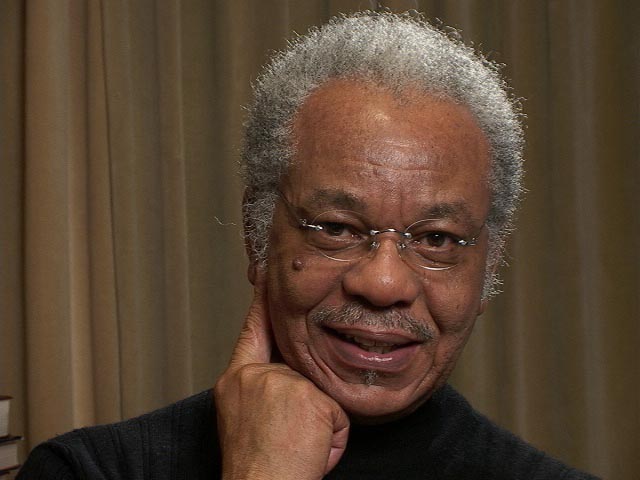From a simple protest to a mass movement
A consistent theme for those of African descent living in various parts of the Diaspora is having to deal with anti-Black bigotry, racism and racial segregation.
We have the common thread across various nations which have a person or persons who coordinated action that served as a tipping point for oppressed African descended people in their nation to start down the path of racial justice.
In Canada, it was Viola Desmond. In the United States it was Rosa Parks. In South Africa, Nelson Mandela. In Bermuda, it was Rev. Dr Kingsley Tweed, who helped to lead the seminal event that ended segregation on the island. The June 1959 Theatre Boycott that put us on track to begin the process of creating a better, more racially harmonious society.
Rev. Dr Kingsley Tweed – a civil rights activist, the founder of the Bermuda Workers Association, and the covert organization, the “Brotherhood” – along with others such as, Kenny Ebbin, Richard “Comrade” Lynch and Robert “Jungle Bunny” Smith, delivered electrifying speeches outside the theatres that sparked determination in the hearts of listeners.
In 1959, the island was approaching the 350th anniversary of its founding as a British colony and was a thriving travel and tourist destination for wealthy Americans.
But the 28,000 Black Bermudians living here at the time chafed at the Jim Crow-like segregation they were subjected to in its hotels, restaurants, schools, theatres, hospitals and other aspects of Bermudian life.
Borrowing from the example of the African-American civil rights movement now playing out before the world’s press, Rev. Dr Tweed decided that it was time to end that discriminatory paradigm.
Since the entire island attended the six white-owned segregated Bermuda General Theatres, a group of Bermudians desiring a better government, universal suffrage and an end to segregation held a series of meetings to coordinate a boycott of those segregated theatres timed to start on June 15.
While the Progressive Group – the group behind the series of demonstrations – kept their identities secret for 40 years, Dr Tweed didn’t have those secrecy reservations. Quite the opposite, he used his image of “the dangerous trouble maker” to create change.
Once the boycott started on June 15, he was a frequent voice on the soapbox and rallied people to support the cause with arguments that proved the time, money and energy put into the theatres by Black Bermudians. He energised the crowds with his fiery street corner speeches.
Over the next eight days, the Theatre Boycott gathered steam thanks to Dr Tweed and Mr. Lynch’s rally oratory and the determination of Black Bermudians. The boycott crippled the movie theatres to the point they had to shut down on June 23.
Soon theatres were empty, and owners were left with no choice but to close them. Victory came with a dramatic capitulation – owners announced that theatres would reopen on July 2, and that blacks would be able to sit anywhere they wanted. Hotels and restaurants followed suit. The peaceful revolution marked the beginning of the end of segregation. Shortly after, Dr Tweed was self-exiled to England because of threats to his life.
In 2016, Dr Tweed delivered a lecture at the University of Oxford on the Bermuda Civil Rights movement from a global perspective as part of a History of Race and Protest course led by Dr Imaobong Umoren.
“Dr Tweed welcomed his courtiers with an impromptu performance on the piano,” writes Alexi Virdi in a review. His poise seemed to show pride in the steps that he had taken in his life. This was followed by a screening of the documentary “When Voices Rise”, which premiered at the Bermuda International Film Festival in 2002, and won the Audience Choice Award.
The film, made by Guyanese filmmaker Errol Williams, powerfully documents actions taken by the brave Bermudians at that time. Rev. Tweed is shown throughout the documentary for his fearless and overt actions as a trade unionist and as chief articulator in the event.
“I have always heard of the stories of racial segregation in the US and South Africa. Talk about people who were willing to turn the other cheek to affect change. You hear a lot about violent protest and the actions that can come from the anger that comes from injustice
“It is refreshing to see how a place had been changed – not by laws or riots, but by changing people’s hearts. It is the harder road to take, but I feel that it is the most effective road to real peace.” Says a critic.
Of his appearance at Oxford Virdi says, “The ongoing legacy of this freedom fighter is something that every generation could learn a great deal from. Indeed, the audience, made up of students, academics and Bermudians, including the former Premier of Bermuda Dame Pamela Gordon, were deeply inspired by the apposite nature of his message for the injustices facing our world today.”

